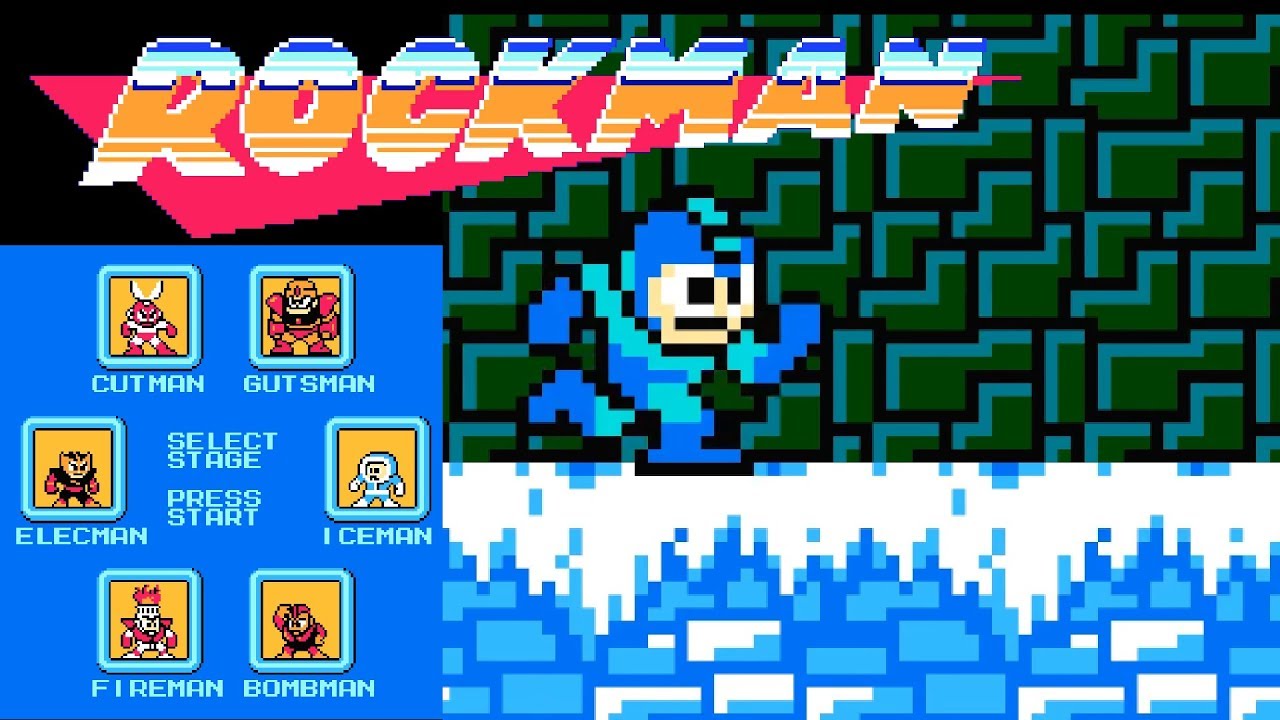🔔 https://www.youtube.com/channel/UCMpNLYz8bcz1-i2vWxSEieQ?sub_confirmation=1
*🎮 Title:* ロックマン (Rockman)
*🕹 Platform Spec*
*🖥️ System:* Family Computer (Famicom)
*🌍 Region Label:* JP
*📄 Revision:* Original
*📅 Release:* 1987-12-17]
*🏢 Publisher:* Capcom
*👾 Developer:* Capcom
*🎲 Genre:* Action → platformer-Shooter ¹
_*🧮 Score Profile*_ ²
*⭐️ Personal Score:* A–
*🌐 Consensus Score:* B+ (✓)
*💬 Cultural Impact (Ψ):* A– (▲)
*📆 Historical Tier:* A (↑)
*✅ Completion Status:* Full Game Clear
*🔥 _Difficulty Profile_* ³
*📈 Difficulty Curve:* With Spikes
*⚙️ Perceived Global Difficulty:* Demanding
*🧠 Play Mode:* Focused / Optimized Play
*🎯 Intent:* Documentation
🎮 Released for the *Famicom* in December 1987, *Rockman* introduced Capcom’s first home‑console original and the foundation of a legendary series. The story follows Dr. Right’s helper robot *Rock,* who volunteers to be refitted into the fighting robot *Rockman* to stop Dr. Wily’s rebellion of six industrial “Robot Masters.” Each stage can be chosen in _*any order,*_ and defeating a boss grants a special weapon ⚡️ that can be carried into later battles, creating a strategic loop of experimentation and weakness exploitation. This structure, together with colorful sprites 🎨, Manami Matsumae’s iconic soundtrack 🎵, and the balance of precise platforming with ranged combat 🔫, gave the game a unique identity distinct from -Super Mario Bros.- or -Contra.- Though not a major hit at launch, its innovations—nonlinear stage select, weapon inheritance, and the creation of an enduring hero—made Rockman a cornerstone of Capcom’s history and a cultural icon far beyond its modest beginnings.
¹ _Rockman on the Famicom (1987) combines two equal parts of play: the careful jumping and climbing of a platform game, and the constant shooting of enemies with an expanding set of weapons. Most people describe it simply as an “action platformer,” which is true, but that label hides how important the shooting really is. A more accurate way to see it is as a “platformer‑shooter,” because both movement and ranged combat are equally central. This balance is what makes Rockman feel different from pure platformers like Super Mario Bros. or pure run‑and‑gun titles like Contra, and it’s the reason the game created a style of its own that went on to define the entire Mega Man series._
² _Although Rockman (1987) shows some rough edges in control stiffness and uneven difficulty, its inventive stage‑select structure, weapon inheritance system, and balance of platforming with shooting justify a Personal Score of A–, slightly lower than its sequels but still strong; the Consensus Score sits around B+ because contemporary reviews were mixed and only later retrospectives recognized its qualities, so the check mark indicates alignment with that historical reception; its Cultural Impact rises to A– with an upward modifier because the game’s reputation as the origin of the Mega Man franchise and its iconic character far outgrew its initial critical standing, making it more influential than its raw consensus suggests; finally, the Historical Tier is rated A with an upward arrow since, in hindsight, Rockman introduced structural innovations—nonlinear stage order, weapon‑based progression—that became foundational for action platformers and shooters, giving it greater historical weight than its original reviews acknowledged._
³ _Rockman’s difficulty curve is best summarized as “With Spikes,” since sudden jumps in challenge appear in stages like Ice Man’s slippery platforms or Guts Man’s moving lifts, but it also incorporates a “Skill Wall” in the Yellow Devil fight and a “Hard End” in Wily’s fortress, where the escalation is sharper than the baseline; additionally, the boss order introduces a “Player‑Driven” modulation that can either soften or intensify the progression depending on the player’s choices. The perceived global difficulty is “Demanding,” requiring consistent mechanical execution across all stages, while also being “Skill‑Intensive” due to the precision of jumps and shots, and “Knowledge‑Intensive” because success depends on memorizing enemy patterns and exploiting weapon weaknesses, making the game tough but fair for those who persist._
#rockman #megaman #megamanNES
Chapters
00:00 Iceman Stage
03:16 Fireman Stage
06:12 Bombman Stage
08:52 Gutsman Stage
11:16 Cutman Stage
14:24 Elecman Stage
18:18 Dr. Wily Stage · Part 1
21:28 Dr. Wily Stage · Part 2
24:46 Dr. Wily Stage · Part 3
27:21 Dr. Wily Stage · Part 4
31:08 Ending





コメント